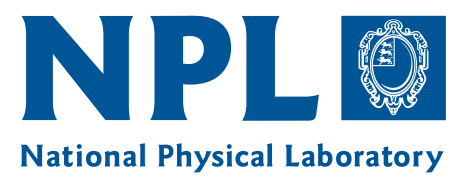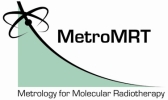NPL - United Kingdom

The National Physical Laboratory (NPL) is the UK's national standards laboratory for metrology. Founded in 1900, it has become a world leading National Measurement Institute (NMI), with over 600 specialists in measurement science and research & development. As the UK's national standards laboratory, NPL underpins the national measurement system, ensuring consistency and traceability of measurements throughout the UK. NPL offers a range of measurement services, contract research, consultancy and training services. Other areas of expertise include the design and characterisation of engineering materials; and mathematical software, especially its application to measurement and instrumentation.
Radiation dosimetry
The Radiation Dosimetry group is concerned with the dosimetry of x- and γ-rays, and charged particles such as electrons and protons. They develop, maintain and disseminate the UK national measurement standards for these radiations and engage in research on radiation interactions to address the needs of industry, healthcare and government. The group is also involved in promoting the role of traceability in quality assurance, international and national specification standards and measurement protocols. They use a wide variety of radiation transport codes, including EGSnrc (and the newer C++ based egspp), GEANT4, MCNPX, FLUKA and PTRAN, to model a whole range of applications across all dosimetry technical areas.
Radionuclide metrology
NPL has been internationally involved in the field of radionuclide metrology and primary standardisation of radioactivity for more than 40 years and has considerable experience in the 4πβ-γ coincidence counting technique. The primary standards are subsequently disseminated to users via the NPL secondary standard (ionisation chamber), which provides calibration of radionuclide calibrators at UK Hospitals for example. NPL has modern laboratories with radiochemical suites and facilities for source preparation of radioactive solutions and exhibits many techniques for primary and secondary measurements of radioactivity such as of applications related to radionuclide metrology, in particular primary standardisation of the 4πβ-γ coincidence counting, TDCR, liquid scintillation counting, gamma spectrometry, ionisation chamber measurements etc.
Measurement uncertainty evaluation
NPL has worked extensively on measurement uncertainty evaluation since the Guide to the expression of uncertainty in measurement (GUM) was published in 1993. The Joint Committee for Guides in Metrology (JCGM), with IFCC as one of its eight international member organisations, has been responsible for the GUM since 2000. The JCGM work and the development of supporting documents to the GUM have relied on the leadership provided by NPL's mathematicians. NPL now has editorial responsibility for the GUM itself.
Role and main tasks in the JRP
NPL is responsible for management and coordination of the JRP; the Project Executive will comprise Vere Smyth, Lena Johansson, and Rebecca Nutbrown.
In WP1 NPL will collaborate on the development of a Čerenkov-TDCR detector, and will lead the task to develop a transfer method for 90Y microspheres.
NPL will lead WP2 on the development of technology and procedures for traceability of quantitative imaging to standards of radioactivity.
In WP3, NPL will contribute to the feasibility studies on radionuclide dosimetry, using expertise in calorimetry and alanine dosimetry, and with Monte Carlo simulation studies.
NPL will lead WP4 on uncertainty analysis of radionuclide dosimetry in MRT patients.
For more information: Contact Vere Smyth

